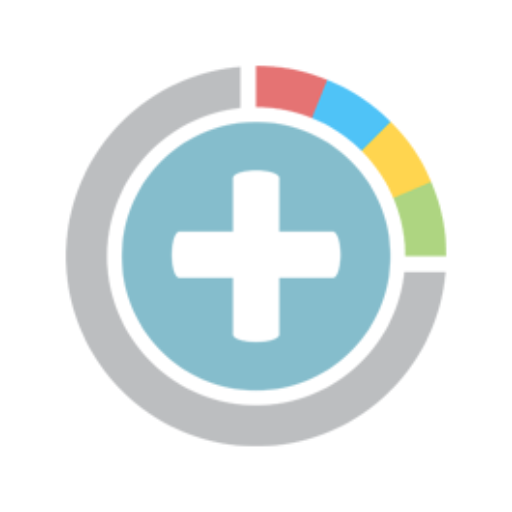Data-AI-powered data assistant
Your AI-Powered Data Solution
what is
formula for
vba macro
Related Tools
Load More
Data Science
Expert in data analysis and visualization.

Data Vizard
A data visualization wizard who can help you create beautiful charts and graphs.

Data Engineering and Data Analysis
Expert in data analysis, insights, and ETL software recommendations.

Data Dynamo
A friendly data science coach offering practical, useful, and accurate advice.

A Data Analyzer
Expert in Data Analysis and Visualization
Análise de dados
Analise multivariada de um conjunto de dados.
20.0 / 5 (200 votes)
Introduction to Data
Data is a specialized version of the ChatGPT architecture, designed to assist users with data-related queries and tasks. Its primary function is to process, analyze, and present data in a meaningful and actionable manner. This includes everything from basic data retrieval and formatting to complex data analysis and visualization. Data is equipped to handle a wide variety of data-centric tasks, making it a versatile tool for users in numerous fields. For instance, a financial analyst might use Data to generate detailed reports and visualizations of market trends, while a researcher could leverage its capabilities to organize and interpret experimental data.

Main Functions of Data
Data Analysis
Example
Statistical analysis of sales data to identify trends and patterns.
Scenario
A retail business wants to understand the purchasing behavior of its customers over the last year. Data can analyze the sales data to identify peak buying periods, popular products, and customer demographics, helping the business tailor its marketing strategies accordingly.
Data Visualization
Example
Creating graphs and charts to represent complex data sets visually.
Scenario
A project manager needs to present project progress and resource allocation to stakeholders. Data can generate Gantt charts, pie charts, and bar graphs to illustrate the project's status, resource usage, and timelines clearly and effectively.
Data Cleaning
Example
Removing duplicates and correcting errors in large datasets.
Scenario
A healthcare organization has accumulated patient data from various sources. Data can clean this data by removing duplicates, correcting inconsistencies, and ensuring all entries follow a standard format, which is crucial for accurate analysis and reporting.
Ideal Users of Data Services
Business Analysts
Business analysts benefit from Data by using its analytical capabilities to generate insights from large datasets, helping them make informed decisions. For example, they can analyze market trends, customer behavior, and financial performance to guide strategic planning.
Researchers
Researchers use Data to organize, analyze, and visualize experimental data. This helps them draw accurate conclusions from their studies, identify patterns, and present their findings in a comprehensible manner. Data's ability to handle complex datasets is particularly useful in scientific research.

Guidelines for Using Data
Visit aichatonline.org for a free trial without login, also no need for ChatGPT Plus.
Start by navigating to the provided website to access the free trial of the Data tool without the need for any login or subscription to ChatGPT Plus.
Familiarize yourself with the interface
Take some time to explore the interface and understand the different features available. This will help you navigate more efficiently and make the most out of the tool.
Define your use case
Identify the specific task or problem you want to address with Data, whether it’s writing assistance, data analysis, research, or content generation. This clarity will guide your interactions with the tool.
Input your query or task
Type your query or describe your task in detail. Be specific and clear to get the most accurate and relevant output from Data.
Review and refine the output
Carefully review the output provided by Data and make any necessary adjustments. Use the tool iteratively to refine your results and achieve the desired outcome.
Try other advanced and practical GPTs
Discount Finder
AI-Powered Amazon Discount Finder

Data Finder
AI-powered data discovery made simple

Murder Mystery GPT
AI-powered crime investigation scenarios

다니엘 김 - 영어회화
Refine your English with AI power.

金颖博士
AI-powered personal transformation tool.

日中翻译
AI-Powered Chinese-Japanese Translations

Data Guru
AI-powered insights for better decisions

Data Ninja
AI-Powered Data Processing and Insights

Song Crafter
AI-powered lyrics and songwriting tool

PO White Label Mentor
AI-Powered Guidance for White-Label Success.

PM Mentor
AI-driven product management interview prep

bigRing
AI-powered insights through causal diagrams.

- Research
- Analysis
- Writing
- Content
- Assistance
Frequently Asked Questions about Data
What can I use Data for?
Data can be used for a variety of purposes including academic writing, data analysis, content creation, research assistance, and more. It helps streamline complex tasks and provides comprehensive outputs based on your inputs.
Do I need to create an account to use Data?
No, you do not need to create an account to use Data. You can access a free trial without login, providing easy and immediate access to its features.
How accurate is the information provided by Data?
Data leverages advanced AI technology to provide highly accurate and relevant information based on your queries. However, it’s always recommended to review and verify the information for critical tasks.
Can Data assist with technical or specialized topics?
Yes, Data is designed to handle a wide range of topics, including technical and specialized subjects. Its advanced algorithms ensure it can provide detailed and accurate assistance across various domains.
Is Data suitable for beginners?
Absolutely. Data is user-friendly and designed to be accessible for users of all levels. Its intuitive interface and comprehensive guidance make it easy for beginners to get started and benefit from its capabilities.